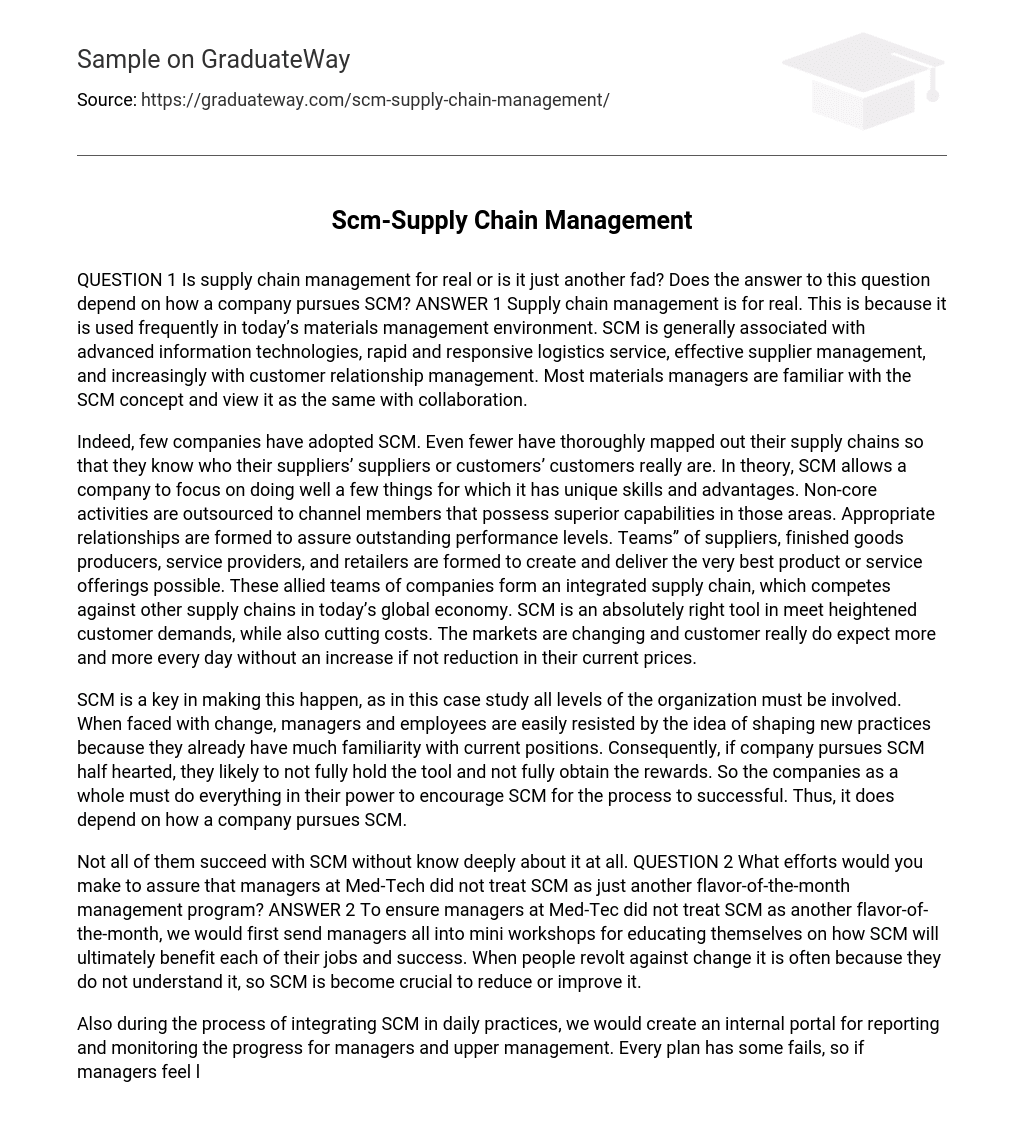QUESTION 1 Is supply chain management for real or is it just another fad? Does the answer to this question depend on how a company pursues SCM? ANSWER 1 Supply chain management is for real. This is because it is used frequently in today’s materials management environment. SCM is generally associated with advanced information technologies, rapid and responsive logistics service, effective supplier management, and increasingly with customer relationship management. Most materials managers are familiar with the SCM concept and view it as the same with collaboration.
Indeed, few companies have adopted SCM. Even fewer have thoroughly mapped out their supply chains so that they know who their suppliers’ suppliers or customers’ customers really are. In theory, SCM allows a company to focus on doing well a few things for which it has unique skills and advantages. Non-core activities are outsourced to channel members that possess superior capabilities in those areas. Appropriate relationships are formed to assure outstanding performance levels. Teams” of suppliers, finished goods producers, service providers, and retailers are formed to create and deliver the very best product or service offerings possible. These allied teams of companies form an integrated supply chain, which competes against other supply chains in today’s global economy. SCM is an absolutely right tool in meet heightened customer demands, while also cutting costs. The markets are changing and customer really do expect more and more every day without an increase if not reduction in their current prices.
SCM is a key in making this happen, as in this case study all levels of the organization must be involved. When faced with change, managers and employees are easily resisted by the idea of shaping new practices because they already have much familiarity with current positions. Consequently, if company pursues SCM half hearted, they likely to not fully hold the tool and not fully obtain the rewards. So the companies as a whole must do everything in their power to encourage SCM for the process to successful. Thus, it does depend on how a company pursues SCM.
Not all of them succeed with SCM without know deeply about it at all. QUESTION 2 What efforts would you make to assure that managers at Med-Tech did not treat SCM as just another flavor-of-the-month management program? ANSWER 2 To ensure managers at Med-Tec did not treat SCM as another flavor-of-the-month, we would first send managers all into mini workshops for educating themselves on how SCM will ultimately benefit each of their jobs and success. When people revolt against change it is often because they do not understand it, so SCM is become crucial to reduce or improve it.
Also during the process of integrating SCM in daily practices, we would create an internal portal for reporting and monitoring the progress for managers and upper management. Every plan has some fails, so if managers feel like they can collaborate on how to better execute SCM they will quickly get into team building mode. Overall Med-Tec does not need to just create SCM, but they also need to breed the culture of SCM which will push out the “fad” mindset. QUESTION 3 Suggest a possible analysis framework Don could use to weigh the facts and determine whether or not SCM is the right thing to do?
ANSWER 3 To analyze whether SCM is right thing to do for Med-Tec, Don could create the beginning of a Supply Chain Road Map the method that would build a better supply chain strategy. First he needs to identify who Med-Tec is and what their purpose is. Then he needs to identify exactly how they fit in as a company currently and where they are falling short. Knowing the facts on what is working correctly and what areas need the most work is extremely important, which can be





